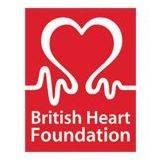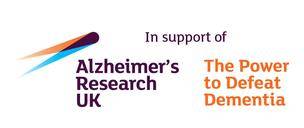Editor - Paul Denny
Gene Annotation
We are very keen to help Parkinson's UK maximise the return on investment they have made in molecular research. So Paul has collated a list of Parkinson's UK funded papers, published since 2010, that involve genes in our high priority list or that created high-throughput datasets. To date Paul has annotated 23 of these, generating 480 annotations. Rebecca has been focusing on annotating proteins involved in the ERAD (endoplasmic reticulum-associated protein degradation) pathway. In this pathway misfolded/unfolded proteins are retro-translocated out of the endoplasmic reticulum and targeted to the cytoplasmic proteasome for degradation. Rebecca's next project will be to annotate proteins involved in WNT-signalling, as WNT3 is a candidate Parkinson's risk gene and WNT-signalling is thought to play a role in Parkinson's pathology (PMID: 22988876). Based on the EBI statistics, (June 20th 2015), we have associated 3998 GO terms to 984 proteins, including 623 human proteins. In addition, at our recent Bioinformatics workshop, some of the attendees brought along papers to annotate that are relevant to Parkinson's. We are now checking their annotations and adding them to the GO annotation database.
Gene Ontology
Pathological changes in proteins, involved in autophagy, often occur in the brains of people with Parkinson's. However, the autophagy branch of Gene Ontology needs to be improved in order to represent the biology described in the literature. Discussions with experts in this field and GO editors is leading to an increase in the number of autophagy-relevant GO terms and improved placement of the existing terms within the ontology. Paul has begun annotating proteins involved in regulating autophagy including GOLGA2 and TBK1. While annotating the ERAD pathway, Rebecca has revised the GO to more accurately and fully describe this process, re-arranging and better defining existing terms and creating new terms including 'ERAD pathway' (GO:0036503) and 'endoplasmic reticulum mannose trimming' (GO:1904380). She is also creating several new cellular component terms for protein complexes that participate in ERAD such as 'Derlin-1-VIMP complex' (GO:0036502) and 'UFD1-NPL4 complex' (GO:0036501). In consultation with Intact curators, Nancy Campbell in our UCL team has been creating corresponding complexes in the Intact Complex Portal, which allows us to attach GO terms to protein complexes themselves, as well as the proteins within the complex.
Meetings Attended
At the inaugural Autophagy Network Meeting in Warwick in May, Paul presented a poster asking for advice on the way autophagy is described in the ontology; this was a great opportunity to network with experts and helped us to develop a list of proteins for annotation. In June, Ruth and Paul attended the annual UCL Neuroscience Symposium and presented a poster describing our work. As a result of these two meetings, we made contact with scientists studying processes relevant to Parkinson's Disease and discussed ways in which we might collaborate, e.g. helping with analyses of GO term enrichment in proteomic data or consulting on improvements in the ontology.
Upcoming events
Ruth is attending the GO Consortium meeting in Washington, DC on August 30th-September 3rd.
Publications
Using Gene Ontology to describe the role of the neurexin-neuroligin-SHANK complex in human, mouse and rat and its relevance to autism. Patel S, Roncaglia P, Lovering RC. BMC Bioinformatics 2015, 16:186. PMID: 26047810
Please contact us to receive this quarterly Newsletter by email
 Close
Close








